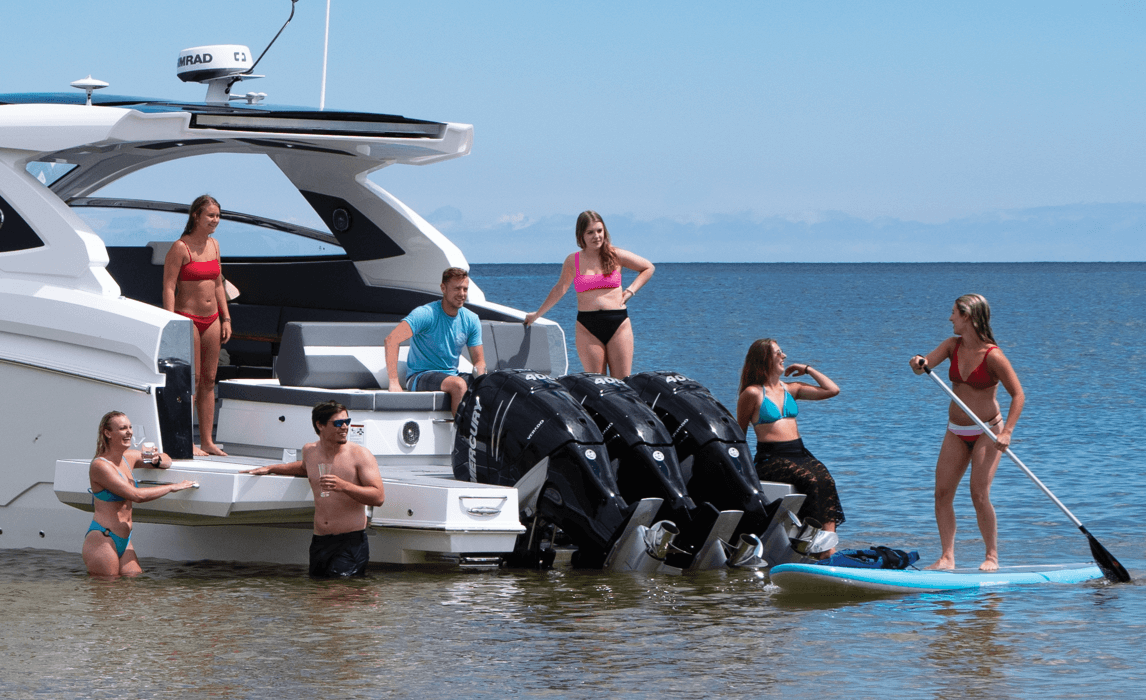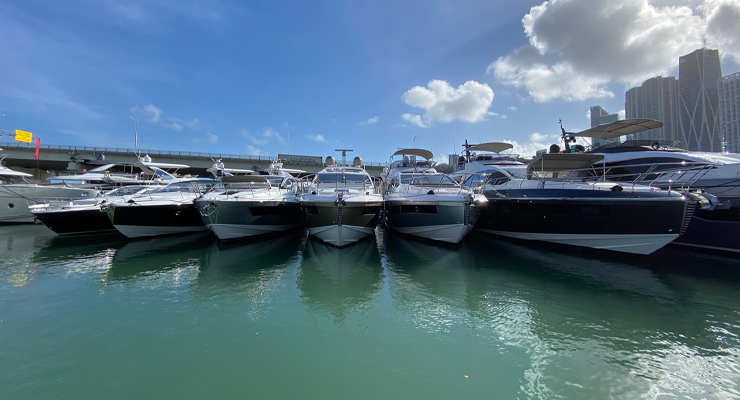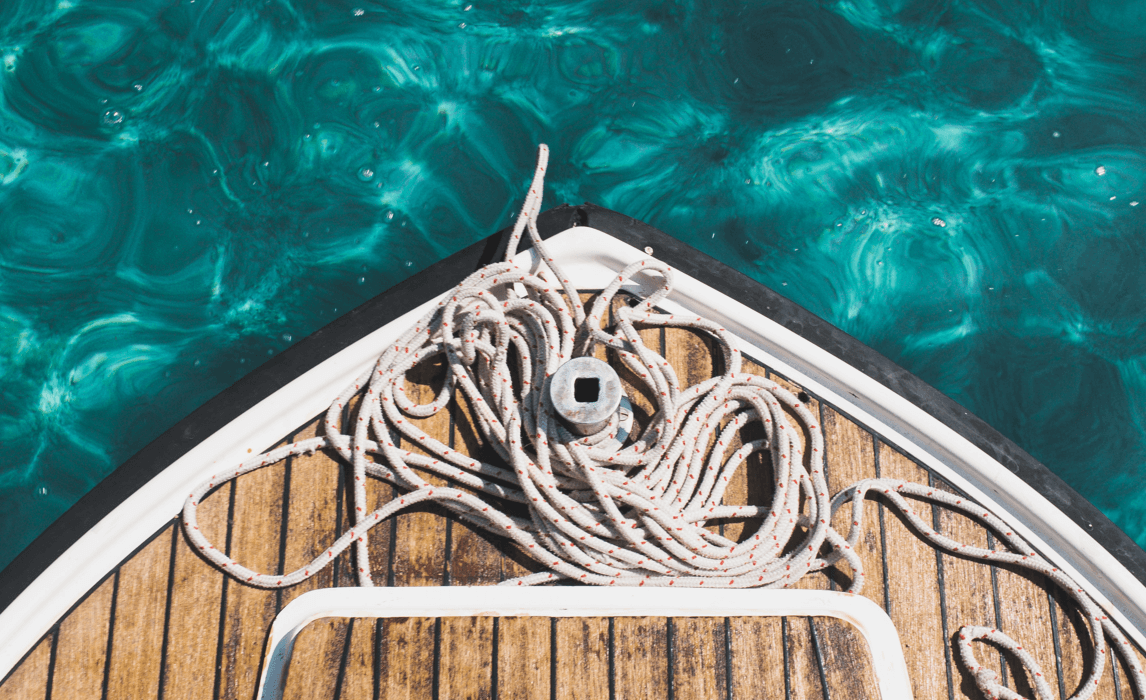NEWCOAST EXPERTISE
Getting Your Boat Ready for the New Season
As winter fades, many boat owners begin to think about the tasks needed to get their boats ready for spring and summer on the water.
In warmer areas, boats and yachts are often hauled out for bottom cleaning and maintenance on running gear, while owners in colder spots like the Midwest are usually getting ready to paint the boat’s bottom and get a good coat of wax on the hull.
There’s a lot to do to prepare for the new boating season, although some are more important than others. Whether you’re a novice or an experienced boater, pre-launch inspections and maintenance can make the difference between a successful day on the water and an unpleasant surprise.
Some of the most important tasks include:
- Cleaning and painting the boat’s bottom
- Washing and waxing the hull and topsides
- Checking fluid levels in engines and generators
- Verifying safety equipment condition
- Testing electronics for proper f functionality
The list of projects and preparations can be long, but some tasks are critical for a safe and enjoyable time for all. Below are some tips and advice to ensure your boat is in shipshape when it's time to hit the open water.
Spring Cleaning
As the weather warms up, it's time to start thinking about spring cleaning. Whether your usual outings involve a day on the lake or some deep-water fishing trips, starting with a clean boat helps protect the different surfaces and materials from the weather and excessive wear and tear.
Begin with a good washdown to remove dirt or grease from the hull or interior, and remember to clean inside storage spaces and cabinets too! When a boat is not in regular use, critters can find their way into the cabin and can often chew through wiring and cause electrical equipment to stop functioning; therefore, it's crucial to find and eliminate pests before they can cause damage or create an unsafe situation.
Treat and Protect all Materials
Materials like canvas, isinglass, and upholstery can fade and dry out—especially in climates like South Florida, where the sun can be brutal. Treating those materials can increase their lifespan and prevent the need to replace them early.
Before beginning, be sure to use a product specifically made for each material to avoid staining or damaging absorbent materials like canvas tops, side curtains, carpets, and seating. Other harsh chemicals, like acetone, can permanently damage materials like plexiglass or remove the color from others, such as seats. If you need help finding the right product for your boat, your local boating supply store will have experts ready to guide you in the right direction.
Check and Verify Safety Equipment Condition
Safety equipment required by the U.S. Coast Guard, such as life jackets and flares, are a must and shouldn’t be taken for granted. Never assume safety gear will work when needed, and always double-check U.S. Coast Guard approval status and functionality before each outing.
Below are some of the most important items to check yearly, especially at the start of a new season:
- Make sure U.S. Coast Guard-approved life jackets are in good condition, fit correctly, and properly stowed. One life jacket is needed per each individual onboard.
- Verify that fire extinguishers are hand-portable, have B-I or B-II classification, are operable, and are readily accessible.
- Ensure non-pyrotechnic and pyrotechnic visual distress devices are in serviceable condition, easily accessible, and meet U.S. Coast Guard requirements.
- Always check first aid kits for proper supplies and keep them in dry storage.
- Ensure Emergency Position Indicating Radio Beacons (EPIRBs) and strobe lights are functioning.
In general, it's beneficial to verify anything that might be needed in an emergency or required by the U.S. Coast Guard is in excellent working condition before leaving the dock.
Check Electronics for Proper Functionality
Many marine electronics can also be critical when there is a problem or breakdown, such as GPS devices, engine monitors, satellite phones, and VHF radios. It’s wise to do regular tune-ups of your devices and ensure you understand how to use them before heading out to sea.
One of the most important electronics to have on a boat is a VHF radio, which is crucial for any boater in a sticky situation. A quality VHF radio allows instant communication between other boaters, the Coast Guard, marinas, and anyone who can help in an emergency. Having a GPS and knowing your coordinates is also imperative so that assistance can locate you quickly. If you need help navigating the proper safety electronics for your boat, do a quick search on the U.S. Coast Guard website or contact local marine patrol.
Finally, not only should you have the proper safety electronics onboard, but you should be aware that marine electronics can be the cause of an emergency as well. For instance, if you have faulty or exposed wiring, you’re more susceptible to fires and power outages. Therefore, verify your equipment is installed and mounted properly, always up to code, tested before each trip, and sealed and shaded when not in use.
Check for Maintenance Needs and Perform Necessary Repairs
It is vital to ensure your vessel is seaworthy and reliable before your first trip of the season takes you any distance from your home port. Engines, running gear, pumps, and lighting should be checked beforehand and regularly for problems to prevent an issue that would ruin a day on the water.
Although many of these tasks should be done at regular intervals throughout the season, it is critical to check and maintain certain things before the start of each season, such as the following:
- Check your hull and superstructure for any signs of damage or wear. Have cracks, bulges, or other abnormalities repaired by a professional before hitting the water to prevent water intrusion from causing extensive and expensive structural damage.
- Check all through-hull fittings and seacocks for leaks, damage, and proper function. Verify that any clamps are in good condition and still secure. Once the boat is in the water, check for leaks—especially below the water line.
- Inspect your boat's engine and all mechanical systems for leaks, excessive rust, and the smooth operation of all moving parts.
- Make sure all fluids are topped off and that there are no raw water or coolant leaks.
- Check all filters and replace them yearly or at the manufacturer’s recommend hourly intervals. Be sure to check generators and other equipment as well.
- Remember to check oil or fluid levels in outdrives and lower units, transmissions, steering systems, and all other systems. Low oil levels in drivetrain equipment can lead to catastrophic failure and a breakdown on open water.
- Check and replace batteries as needed. Batteries can and will fail at the worst possible time, so replace them every few years. Also, keep the contacts and cables clean and corrosion-free, and be sure the batteries are secured.
- Remember to check all dock lines, anchor lines or chains, sails, and rigging for problems such as fraying, rot, corrosion, or wear and replace them as necessary.
By performing these simple checks, you can help ensure a smooth, safe, and enjoyable season for you and your boat.
Hire a Professional when Necessary
Before putting your boat in the water or officially starting the new season, you may want to have your vessel inspected by a professional. Many insurance companies require a professional survey to get the best rates, but having a qualified expert check an engine, running gear, generators, and other specialized equipment may be the best way to keep things afloat.
If you can perform any of the tasks necessary while ensuring a safe and enjoyable season yourself, you can save on the costs associated with launching or commissioning your boat. However, some of the most critical maintenance or checkups performed by a professional can prevent expensive damage to engines and other equipment and can be a requirement for maintaining a manufacturer's warranty as well.
Ready, Set, Go.
By taking the time to properly clean and maintain your boat before spring or summer, you can help ensure the new boating season is a safe and enjoyable experience for everyone on board. Verifying that all systems are well-maintained and properly functioning can also give you peace of mind when on your next adventure.
Ask the Experts at Newcoast
Escape to a world without worry with Newcoast—the all-in-one destination for recreational finance and insurance solutions. Whether an individual is looking to finance or protect a boat, yacht, or RV, Newcoast experts with decades of industry experience can design a tailored program for each lifestyle. As for dealers, Newcoast will work directly with your team to ensure quick and easy financing and insurance options for qualified buyers. With access to various lending sources, competitive rates, and industry-specific insurance programs, Newcoast is a one-stop-shop solution.
Sources:
https://www.discoverboating.com/resources/preparing-for-spring-boating-seasonhttps://www.rockthelake.com/buzz/2018/03/boat-spring-commissioning-list/https://www.myboatlife.com/2014/02/spring-boat-launch-and-prep-checklists.html
https://www.boatus.com/expert-advice/expert-advice-archive/2020/april/how-to-get-your-boat-ready-for-spring
https://vesselvanguard.com/17-must-do-spring-boat-maintenance-tasks/
https://boatplanet.com/the-captains-blog/spring-maintenance-checklist
https://www.boatengine.com/boat-maintenance-checklist-2018/
https://cottagelife.com/design-diy/six-boat-maintenance-tips-for-spring/
https://www.onthewater.com/spring-boat-dewinterization-checklist

insights
Finding the Right Boat or YachtNEWCOAST EXPERTISE Finding the Right Boat or Yacht for You? With Newcoast by your side, findi...
Learn More
expertise
How to get the best interest rateNEWCOAST ADVANTAGE How to Get the Best Interest Rate If you're looking for the best rates an...
Learn More
insights
Boat Show TipsNEWCOAST DIFFERENCE Headed to a Boat Show? So many boats and yachts all in one place! Shoppi...
Learn More
expertise
Understanding Your Credit ScoreNEWCOAST EXPERTISE Understanding Your Credit Score Have you been considering a loan to purchas...
Learn More